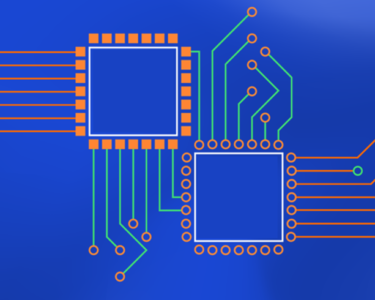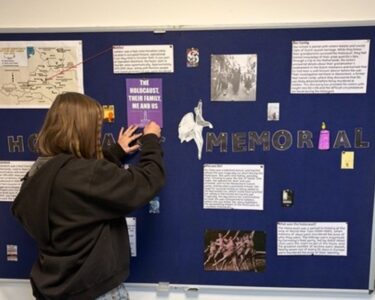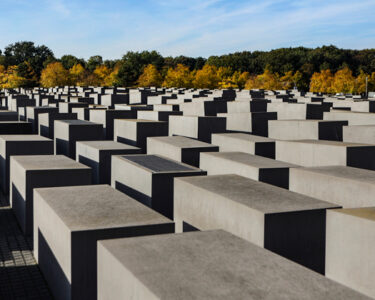Holocaust Memorial Day this year marks the 80th anniversary of the liberation of Auschwitz — the largest Nazi killing site and concentration camp complex, on January 27th, 1945.
By Ruth-Anne Lenga
Associate Professor and Deputy Head of UK Delegation of the International Holocaust Remembrance Alliance (IHRA)
Eighty years ago, in the final stages of the war, the Soviet allied troops were closing in on the Third Reich. What they would discover when they entered Auschwitz was the evidence of barbarism, on a scale not previously seen. As the Soviets advanced towards the camp, SS guards made a desperate attempt to cover up the evidence of their atrocities before frantically taking off in quick retreat. They blew up the crematoria and destroyed the vast archive that documented in meticulous detail the systematic mass murder of men, women and children. In a race against time, they also started to evacuate those who could testify to their crimes – the prisoners, mostly starving, brutalised and broken Jews who were ordered to walk many kilometres by foot on what has become known as the “death marches”.
Freezing temperatures, and minimal food, shelter or rest led to thousands of deaths through exhaustion, exposure or from the brutality inflicted on them on route. Masses were murdered along the way – shot on the spot when they could not keep up.
One of those who miraculously survived these horrific events was London born Leon Greenman whose story runs throughout the teacher training programme provided by UCL Centre for Holocaust Education. Leon spent his post war years living in London and passed away in 2008 (the same year the Centre was established) at the age of 97. Perpetuating Leon’s mission and legacy to work for a better future became a central part of the Centre’s inspiration, growth and identity.
Leon was born in Spitalfields in 1910 right in the heart of London’s Jewish East End – a community that grew from the immigration of Ashkenazi Jews at the turn of the 20th century. Jews arrived in this country as refugees escaping from a surge of anti-Jewish pogroms in Eastern Europe. Leon, however, spent some of his childhood in the Netherlands where his paternal grandparents had settled.
Leon trained as a barber but dreamed of becoming a professional singer of romantic ballads and light opera. In 1935 he married his sweetheart, Else van Dan. The ceremony took place in Stepney Green synagogue. After some persuading Leon finally agreed to Else’s wish to spend their early married life living in Rotterdam with her elderly grandmother – a woman in her 80s, who was becoming increasingly fragile and in need of care. So, they made Rotterdam their home and Leon became a partner in Else’s father’s small antique book business. Everything was going well but when signs of an impending war with Germany increased, Leon contemplated returning to England, but that would mean leaving grandmother behind and, by this stage, Else was pregnant.
War broke out in 1939 and, just two months after the arrival of their baby, Barney, in March 1940, Germany invaded the Netherlands and Rotterdam was carpet-bombed. While Leon and the family survived this onslaught it marked a turning point that would change Leon’s life forever.
Under German occupation Leon, together with other Jews, was subjected to antisemitic laws, restrictions on movement and loss of rights. Then, in October 1942, the Greenmans were arrested in the middle of the night by Nazi sympathizing Dutch police. After three months incarcerated in Westerbork camp they were deported to ‘The East’. By that point most understood this to signal a doomed fate ahead. Leon didn’t go without a fight. He tried every which way to persuade those overseeing the transport that their British citizenship should exempt them from deportation. His efforts came to nothing. Approximately 700 Dutch Jews were taken on the same transport which left the Netherlands for Auschwitz in January 1943 – a journey that took 36 hours without food or water.
Arrival at Auschwitz-Birkenau was met with bellows, orders and aggression from uniformed German guards with snarling dogs. Else and Barney were separated from Leon. He managed to catch a glimpse of them both as they were transported away – he could just see the top of their distinctive red matching coats and hats among a crowd of other women and children being taken away in an open truck. Unbeknown to him, at the moment they were being taken to a gas chamber to be murdered.
Leon was ordered to join a group of fifty men who were taken to another part of the camp and was forced into slave labour. He survived three years of mindless beatings, roll calls in freezing conditions, poor sanitation, hard physical work and malnutrition and was tattooed with the number 98288. He was subjected to unspeakable cruelty, including medical experimentation, and witnessed random executions of fellow inmates before he was evacuated on that infamous Death March, which led him barely alive, to Buchenwald concentration camp.
When Soviet troops liberated Auschwitz on 27th January 1945, they were confronted with appalling scenes. Mass murder had taken place in the last few days leading up to the evacuation and the partially burned bodies in the half-destroyed crematoria, shocked the battle worn soldiers. Many of the liberated prisoners died shortly after being freed, such was the severity of their condition.
Liberation at Buchenwald for Leon came a few months later, on 11 April 1945, by General Patton’s 3rd U.S. army. While freedom brought an end to the tyranny, it did not bring an end to the suffering. In fact, Leon often said that it was after liberation that the real suffering began. He had to face living in an empty world, having lost everyone dear to him, deeply traumatised, racked with survivor guilt and not able to bring himself to trust a soul. It cost him any normality in the years that followed. Yet he found great purpose through bearing witness to the Holocaust, giving testimony to schools, universities, students and teachers including those on ITE courses at UCL.
Leon must have spoken to thousands in the hope it may bring about a better future. He carried this mission on until shortly before his death at the age of 97. I developed a close friendship and working relationship with Leon in his later years and it gave me a rare insight into what holocaust survivors like Leon go through when sharing their testimony and why they are compelled to put themselves through it. Of course, I would never truly understand.
Some may ask why marking HMD remains so important. After all, so much time has passed and survivors are depleting.
For me, acknowledging this day is arguably more important now than ever before. Hate continues to divide communities and destroy lives, and we are seeing massively increased levels of antisemitism and ‘anti-Muslim’ hatred too. It damages lives and dangerously undermines democratic values. Collective remembrance of where hate has led during those dark years, and what could have been done to prevent it, is vital in safeguarding the society we live in today. Being secure in knowledge and understanding of it is also critical for confronting those who try to distort and subvert the historical record of the Holocaust.
Prime Minitser Keir Starmer visited Auschwitz last week and in a follow up letter published yesterday he made this point:
‘”Time and again we condemn this hatred, and we boldly say ‘never again’… but where is ‘never again’ when the pulse of fear is beating in our own Jewish community, as people are despicably targeted once again for the very same reason: because they are Jewish.
Mindful of the passing of time, and as part of the UK Presidency of International Holocaust Remembrance Alliance (IHRA), in collaboration with the Association of Jewish Refugees, two new initiatives were launched this week that will serve to preserve the memory and testimony of survivors of the Holocaust long into the future.
- The first is a portal housing interviews conducted with survivors (including Leon) making them accessible to all,
- 80 Objects/80 Lives an online exhibition entitled which brings together inspiring stories surrounding 80 objects relating to personal experiences of the Holocaust to mark the 80th anniversary of the liberation.
It is also why our work at the UCL Centre for Holocaust Education is so important, transforming teaching and learning about the Holocaust to ensure young people will have the knowledge and critical tools they need to understand the Holocaust and confront the related and continued threats posed by antisemitism, prejudice and extremism.



